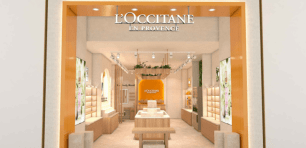
Outland Denim founder James Bartle was one of several brands that boycotted the 2022 Ethical Fashion Guide. Source: Inside Retail.
Outland Denim founder James Bartle has asked Baptist World Aid to remove its latest Ethical Fashion Report, and refine its rating curve in order to better reflect each individual brand’s efforts in being more ethical and sustainable.
Bartle argued, through an Instagram video, that a number of brands that received a ranking of A do not meet his standard for ethical practices, and that the report risked misleading customers into thinking certain brands were sustainable or ethical when they aren’t.
“I have some fairly major concerns around the report,” Bartle said.
“I do believe in what Baptist World Aid are doing, and I do believe they are doing a great job in moving the industry in the right direction.
“But, if you look at the brands that received the rank of A… some of them aren’t meeting basic human rights needs of [paying] living wages. It’s for that reason that I have a problem with the way the grading system works.”
While Bartle doesn’t name a specific brand, the brands ranked A include Adidas, Bonds, Bras N Things, Champion, Converse, Country Road, Glassons, H&M, Icebreaker, Kathmandu, and Lululemon, among others.
Outland Denim itself ranked as an A+ on the report, alongside Etiko, Joyya Apparel, and Mighty Good Basics.
View this post on Instagram
Baptist World Aid hasn’t yet responded, but said in its report that, overall, the fashion industry still had a long way to go.
The report found that while there are strides being made in the industry in terms of customer facing initiatives, such as more companies publishing their supplier lists, companies actively working to trace their raw material suppliers and a companies beginning to use sustainable fibres in their clothing.
However, to Bartle’s point, only 15 per cent of companies can demonstrate paying a living wage to staff in any ‘final stage’ facility, and only 4 per cent can show paying it in all final stage facilities, while only 19 per cent can show they have plans in place for wage or overtime violations.
This article was first published by Inside Retail.
Handpicked for you

How Zero Co is reducing plastic waste, and how your business can too



COMMENTS
SmartCompany is committed to hosting lively discussions. Help us keep the conversation useful, interesting and welcoming. We aim to publish comments quickly in the interest of promoting robust conversation, but we’re a small team and we deploy filters to protect against legal risk. Occasionally your comment may be held up while it is being reviewed, but we’re working as fast as we can to keep the conversation rolling.
The SmartCompany comment section is members-only content. Please subscribe to leave a comment.
The SmartCompany comment section is members-only content. Please login to leave a comment.